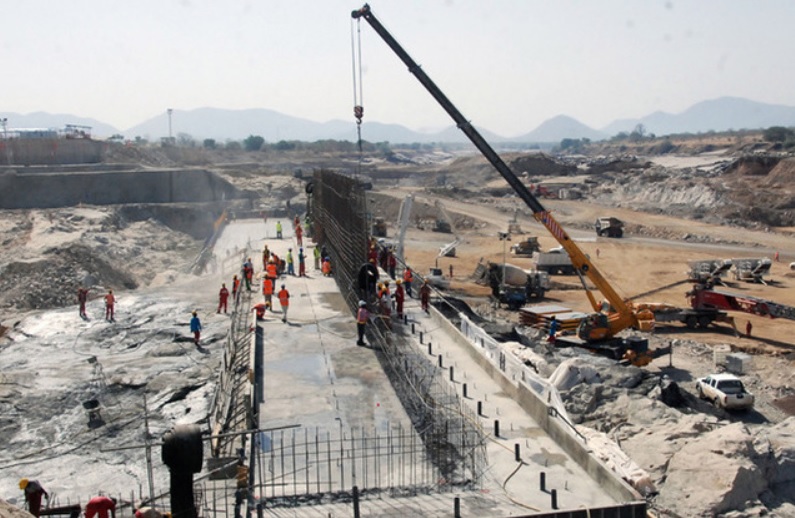
Ethiopian Prime Minister Abiy Ahmed announced on Saturday that Ethiopia’s Grand Ethiopian Renaissance Dam (GERD) might not be completed, the Ethiopian News Agency (ENA) reported.
In a press conference, Ahmed said the project was scheduled to be completed in five years, but was unable due to the failed administration as well as meddling from the Metal and Engineering Corporation (METEC), a company under the management of the Ethiopian Defense Forces.
The prime minister added that the company was also mismanaged due to its board’s lack of experience in managing huge projects. Therefore, after he came to power, Ahmed ordered a report about the progress done on the GERD and discovered that METEC did not carry out its end of the deal.
Subsequently, Ahmed revealed that the contract was now being transferred from METEC to a different contractor able to resume and complete the GERD.
However, another obstacle still stands against the GERD’s completion as the government currently owes Italian company Salini money, due to METEC being unable to abide by the schedule.
“Salini is completing its part of the project on time and now it is demanding huge payment because the project is lagging from METEC’s side,” Ahmed said during the conference.
“We have handed over a complicated water dam project to people who have not seen a dam in their life and if we continue in that direction, the project may never see the light of day,” he added, according to private Ethiopian newspaper The Reporter.
Following this announcement, Ahmed took the time to remember the GERD’s late director Simegnew Bekele, who he said gave his life to the project, adding that investigations are still surrounding the murder.
Bekele, the Project Manager of Grand Ethiopian Renaissance Dam, was killed in July while driving his car in Meskel Square in Addis Adaba city, Ethiopia.
The incident came just after Ethiopia’s ambassador to Sudan, Mawtada Zoudi, announced in June that the construction of the GERD has passed 65 percent completion, boasting that “work in the dam is in full swing.”
Just before in May 2018, Egypt’s Ministry of Foreign Affairs spokesperson Ahmed Abu Zeid announced the success of the mediation meeting regarding the GERD negotiations in Adis Ababa, tweeting, “Mediation meeting regarding the Renaissance Dam ended successfully in Adis Ababa”.
A month before that, Egypt’s Foreign Minister Sameh Shoukry affirmed during his latest tripartite meeting on the GERD that consultations had not produced significant results that could be announced.
In 2011, Ethiopia started construction on the GERD over the Blue Nile River, one of the major sources of the water that forms the River Nile downstream.
Ethiopians see it as is a great national project and a means of overcoming poverty. Egypt, however, feared the dam will affect its historic Nile water which it has had access to since the historic 1959 agreement with Sudan.
Egypt’s share of Nile water sits at 55.5 billion cubic meters, while Sudan’s quota is 18.5 billion cubic meters.
This is in accordance with an agreement signed between the two downstream countries in 1959; Ethiopia is not part of this agreement. Ethiopia reassured Cairo that its water share will not be affected.




